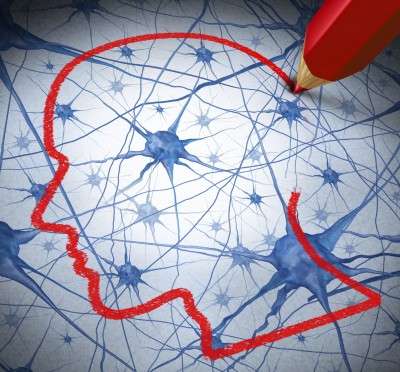Reducing a person's calorie intake can protect against the development of neurodegenerative diseases such as Parkinson's Disease. But why this happens has remained a mystery. Until now.
Monash researchers, led by Associate Professor Zane Andrews from the Monash University Biomedicine Discovery Institute, have discovered the way this calorie reduction neuro-protection works – opening up the way for the development of drugs that could slow or prevent diseases like Parkinson's, without the need to reduce calories. The research is published in the Journal of Neuroscience.
Humans have a hormone – called Ghrelin or "hunger hormone" – that is produced in the gastrointestinal tract and acts on the brain to regulate hunger.
Associate Professor Andrews found that by decreasing calorie intake in animal models – thereby boosting Ghrelin production – the hallmarks of Parkinson's Disease failed to develop. This was confirmed in studies by comparing those that produced Ghrelin with those that did not produce ghrelin. Those that did not produce Ghrelin, exhibited much more severe signs of Parkinson's Disease when calorie intake was restricted.
According to Dr Andrews, Ghrelin is more than just a "hunger hormone". "When we are hungry we need more than just a signal that tells us to eat," he said.
"Ghrelin also tells us to go and find food, it reduces the anxiety in actively seeking out food and it triggers memory so that we can recall where we last found food. It also keeps the brain healthy by preventing degenerative processes. So it's a very important hormone in keeping us alive."
Dr Andrews and his research colleagues have also found that the molecular mechanism by which Ghrelin acts in the brain – a protein called AMPK – is the mechanism by which Ghrelin protects the dopamine cells in the brain from degenerating, which is the cause of Parkinson's Disease.
"We have been able to mimic the effect of calorie restriction by giving Ghrelin and triggering the activation of AMPK only in dopamine cells", he said.
"Effectively we have been able to reproduce the neuroprotective benefits of calorie restriction without having to reduce food intake, which is a difficult thing to maintain over a lifetime."
Dr Andrews believes the discovery has implications for protecting against other neurodegenerative diseases such as Alzheimer's Disease. "Once these neurodegenerative disease first appear, it should be possible to trigger the brain into thinking it is on a calorie controlled diet, in turn triggering the protective and preventative effects of Ghrelin."
Importantly there are already drugs available that activate AMPK – and a longitudinal (40 year) study of diabetics in Taiwan found that one of these drugs, Metformin, also protected against the development of neurodegenerative diseases. This, according to Dr Andrews, provides further evidence that the AMPK pathway may provide a novel way to prevent neurodegenerative diseases.
More information: J. A. Bayliss et al. Ghrelin-AMPK Signaling Mediates the Neuroprotective Effects of Calorie Restriction in Parkinson's Disease, Journal of Neuroscience (2016). DOI: 10.1523/JNEUROSCI.4373-15.2016
Journal information: Journal of Neuroscience
Provided by Monash University






















